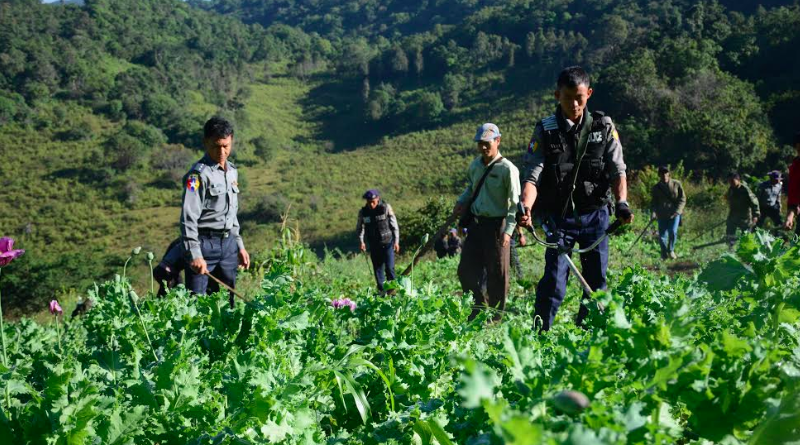Farmers say no government officials have come to see their agricultural project.
By KANTARAWADDY TIMES
Farmers who once cultivated poppies for opium in Karenni and southern Shan State have started to grow avocado plants as part of a substitution scheme.
One area testing out avocados is Yeenwe village tract, in southern Shan State’s Pekhon Township.
“These are long life plants. If the plants grow, we don’t need to invest much in them, and we can get regular earnings. They are also suitable for the weather in our area,” U Pang, a Yeenwe farmer, told Kantarawaddy now growing avocados.
According to campaigners who have surveyed the area, an estimated 60 percent of farmers in Yeenwe village tract grow poppies.
Saw Bo, who is ethnic Kayan, has been involved in introducing information about substitution crops in the area’s villages.
“Some villagers are hunters, some work in traditional weaving and craftsmanship. We can also grow chilies. But six or seven out of 10 people grow poppies,” he explained.
The Yangon-based Metta Foundation provided around 10,000 avocado plants as substitute crops for more than 200 acres of poppy farmland.
In August 2017, Khin Sithu—a parliamentarian for Karenni State’s Loikaw constituency—asked in the Lower House how the legislature might better help poppy farmers. Then deputy minister of home affairs Maj-Gen Aung Soe said that “socioeconomic development plans” would address this issue.
Yet according to community members, respective government officials and parliamentarians have not come to see the agricultural project in Yeenwe.
“No government officials have visited our area to see our substitute crops. Authorities used to destroy poppy plantations but they didn’t carry out surveys for substitute crops,” village elder U Tin Maung said.
Locals want the government to create a market so that they can sell their crops.
“Now we can produce raw materials, but we need a factory to produce value added products,” U Tin Maung said.
According to Saw Bo, if there is greater support for farmers, then the reliance on poppy plantations will decrease.
“The government must help farmers grow substitute crops for poppies. If government won’t provide assistance, the process will be difficult,” Saw Bo said.


